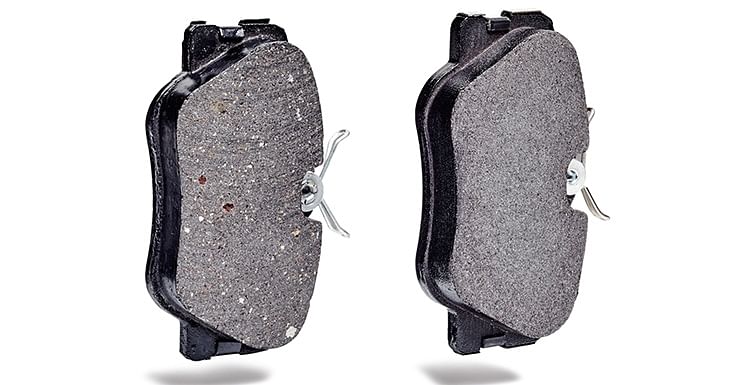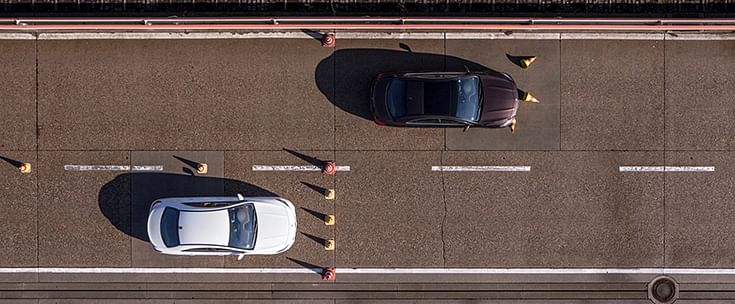Over 1.6 million Mercedes-Benz counterfeit products seized in over 620 raids in 2022
Global trade in counterfeit Mercedes-Benz products continues to grow, especially online. In 2022, the number of removed online offers of counterfeit listings rose by over 23% to 155,000 cases, and more than 1.6 million counterfeit products were seized.
Global trade in counterfeit Mercedes-Benz products continues to grow, especially online. In 2022, there was another significant increase in counterfeiting activities on social media and online marketplaces. Compared to 2021, the number of removed online offers of counterfeit listings on relevant platforms rose by more than 23% to over 155,000 cases. According to the luxury carmaker, in 2022, a total of more than 1.6 million counterfeit products were seized in over 620 raids.
The quality of counterfeit products is usually poor and does not meet the minimum legal requirements in terms of safety. Therefore, counterfeiting is a significant risk to the health and safety of road users. A global team at the Mercedes-Benz Intellectual Property Competence Centre works closely with customs and law enforcement authorities around the world to put a stop to counterfeiters.
"Organised gangs of counterfeiters usually have their low-quality and often dangerous goods produced under inhumane conditions without regard for human rights, environmental standards and occupational health and safety. We are taking massive action against this. This is because they harm not only consumers, but also local workers and society as a whole. Counterfeiters are very active and are constantly expanding their portfolio,” said Renata Jungo Brungger, Member of the Board of Management of Mercedes-Benz Group AG for Integrity, Governance & Sustainability.

Brake pads after stress test: Counterfeit (left) and original (right)
 The car with the fake brake pads (above in the picture) has a significantly longer braking distance.
The car with the fake brake pads (above in the picture) has a significantly longer braking distance.
Keeping a close watch on online platforms
In addition to the classic targets of product pirates, such as brake discs, wheels and body and steering parts, online platforms will also continue to be under the watchful eye of brand protectors at Mercedes-Benz. This is because counterfeit products can often hardly be visually distinguished from original parts. For the first time in 2022, the number of deleted listings of counterfeit offers on social media and online platforms rose significantly to over 155,000.
"The trade in counterfeit products via online platforms and social media has also increased sharply in the last year. Our brand protectors focus on safety-relevant counterfeits, because they endanger people. However, we are also keeping an eye on the counterfeiting industry's growing business model for digital goods. In 2022, a total of more than 155,000 counterfeit product listings were removed from online platforms,” added Florian Adt, COO and General Counsel at Mercedes-Benz Intellectual Property GmbH & Co.
Three-pronged brand protection strategy
When trading counterfeit goods, counterfeiting gangs take advantage of the high degree of anonymity and decentralised nature of online marketplaces and technologies. For this reason, Mercedes-Benz is further expanding its strategic and operational measures against counterfeiting in online trade. The brand protection strategy comprises three pillars: detecting, attacking and preventing. For this reason, the brand protectors regularly offer training events and information material to raise awareness, for example for customs authorities or service providers.
In order not to fall for counterfeiters, a few simple criteria help consumers when shopping. This starts with the careful examination of conspicuous offers in everyday (online) life. Typical alarm signals for counterfeit products are a significantly low price, abnormalities in product quality or sales via dubious online sources. In some cases, it is immediately apparent from the product images or the designations that they cannot be genuine, since Mercedes-Benz does not manufacture these products at all.
RELATED ARTICLES
Autoliv Plans JV for Advanced Safety Electronics With China’s HSAE
The new joint venture, which is to be located strategically near Shanghai and close to several existing Autoliv sites in...
JLR to Restart Production Over a Month After September Hacking
Manufacturing operations at the Tata Group-owned British luxury car and SUV manufacturer were shut down following a cybe...
BYD UK Sales Jump 880% in September to 11,271 units
Sales record sets the UK apart as the largest international market for BYD outside of China for the first time. The Seal...






 By Autocar Professional Bureau
By Autocar Professional Bureau
 18 Aug 2023
18 Aug 2023
 11164 Views
11164 Views










 Ajit Dalvi
Ajit Dalvi




